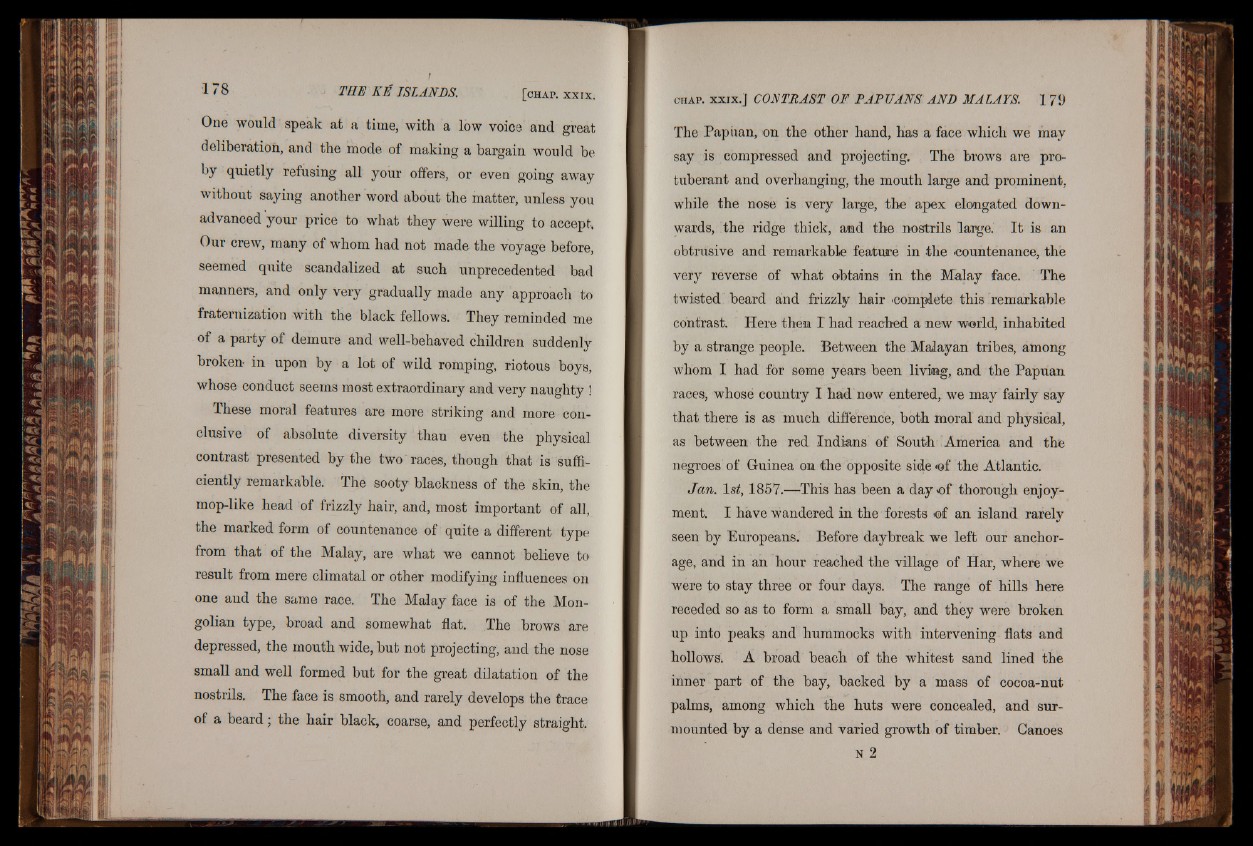
One would speak at a time, with a low voice and great
deliberation, and the mode of making a bargain would be
by quietly refusing all your offers, or even going away
without saying another word about the matter, unless you
advanced your price to what they were willing to accept,
Our crew, many of whom had not made the voyage before,
seemed quite scandalized at such unprecedented bad
manners, and only very gradually made any approach to
fraternization with the black fellows. They reminded me
of a party of demure and well-behaved children suddenly
broken- in upon by a lot of wild romping, riotous boys,
whose conduct seems most extraordinary and very naughty !
These moral features are more striking and more conclusive
of absolute diversity than even the physical
contrast presented by the two races, though that is sufficiently
remarkable. The sooty blackness of the skin, the
mop-like head of frizzly hair, and, most important of all,
the marked form of countenance of quite a different type
from that of the Malay, are what we cannot believe to
result from mere climatal or other modifying influences on
one and the same race. The Malay face is of the Mongolian
type, broad and somewhat flat. The brows are
depressed, the mouth wide, but not projecting, and the nose
small and well formed but for the great dilatation of the
nostrils. The face is smooth, and rarely develops the trace
of a beard; the hair black, coarse, and perfectly straight.
The Papuan, on the other hand, has a face which we may
say is compressed and projecting. The brows are protuberant
and overhanging, the mouth large and prominent,
while the nose is very large, the apex elongated downwards,
the ridge thick, and the nostrils large. It is an
obtrusive and remarkable feature in the countenance, the
very reverse of what obtains in the Malay face. The
twisted beard and frizzly hair complete this remarkable
contrast. Here then I had reached a new world, inhabited
by a strange people. Between the Malayan tribes, among
whom I had for some years been living, and the Papuan
races, whose country I had now entered, we may fairly say
that there is as much difference, both moral and physical,
as between the red Indians of South America and the
negroes of Guinea on the opposite side of the Atlantic.
Jan. lsi, 1857.—This has been a day of thorough enjoyment.
I have wandered in the forests of an island rarely
seen by Europeans. Before daybreak we left our anchorage,
and in an hour reached the village of Har, where we
were to stay three or four days. The range of h i l l s here
receded so as to form a small bay, and they were broken
up into peaks and hummocks with intervening flats and
hollows. A broad beach of the whitest sand lined the
inner part of the bay, backed by a mass of cocoa-nut
palms, among which the huts were concealed, and surmounted
by a dense and varied growth of timber. Canoes
N 2